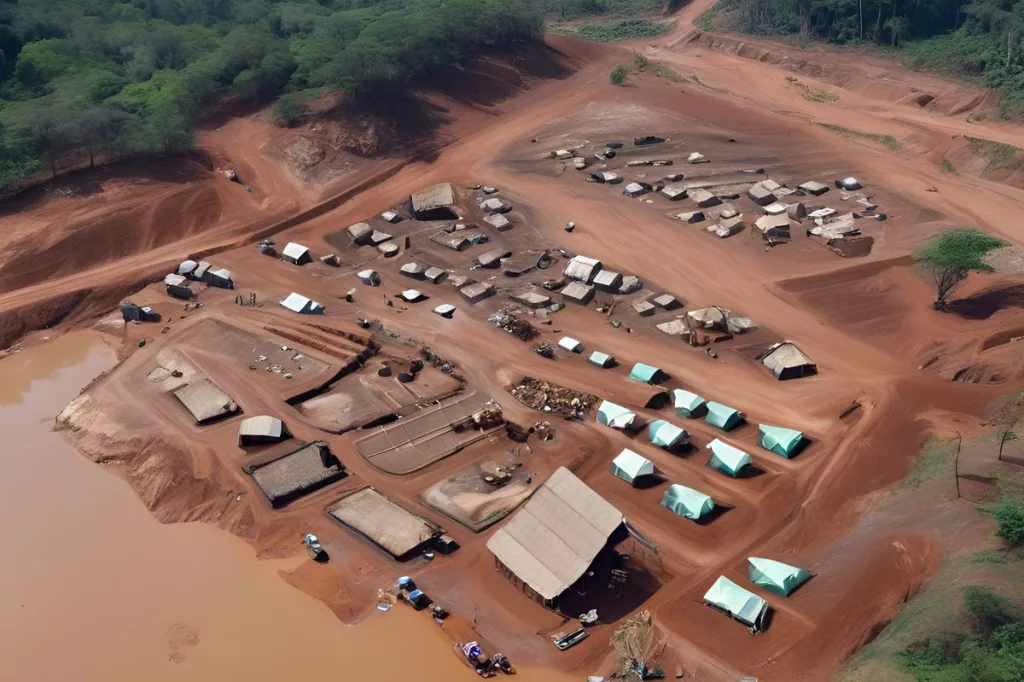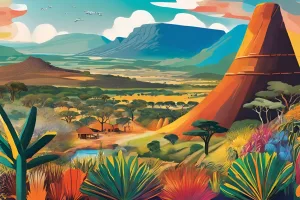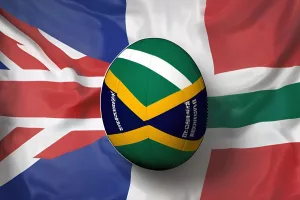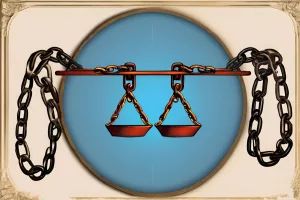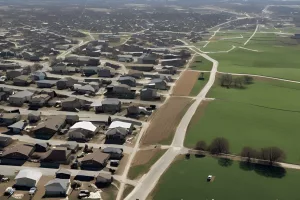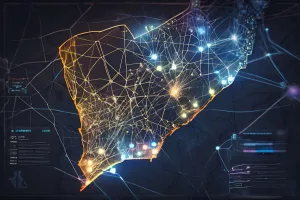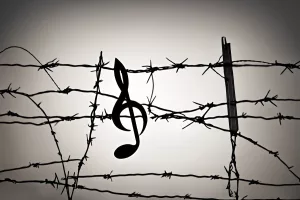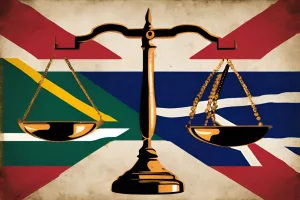South Africa is fighting against illegal mining with a strong team of police, soldiers, and private security. They’ve recently targeted a large group of about 6,500 illegal miners in Ekurhuleni, where hidden tunnels and makeshift homes showed the extent of this underground world. While these operations can push miners away temporarily, true solutions need to address the economic struggles that drive people to these risky jobs. The goal is to create lasting change that not only protects the environment but also offers communities new opportunities for a better life.
In her first 100 days as South Africa’s Minister of Tourism, Patricia de Lille has launched exciting plans to boost travel and create jobs. She aims to attract 15 million tourists by 2030 and has improved the visa process to make it easier for visitors from key countries. With a focus on teamwork and community growth, her initiatives include new tourism projects that celebrate South Africa’s rich culture. De Lille’s vibrant leadership promises a bright future for the country’s tourism, making it a vital part of economic recovery.
The Springbok Women’s Rugby Team is breaking barriers in a sport long seen as just for men. Their journey is filled with strength, hope, and the spirit to inspire others. With the help of famous players like Siya Kolisi, they are preparing to face tough challenges ahead, aiming for success at the Rugby World Cup. Each player, like Nomawethu Mabenge and Nombuyekezo Mdliki, brings their own story of hard work and dreams, showing that this team is not just about winning but also about building a brighter future for women in sports. Together, they are crafting a legacy that reshapes rugby in South Africa, proving that anyone can chase their dreams, no matter the odds.
In South Africa, the battle over social grants is heating up as many people are getting denied the help they desperately need. The South African Social Security Agency (SASSA) is facing backlash for its strict rules and a rise in grant denials, which some say hurt the most vulnerable citizens. Groups like PayTheGrants are pushing back, claiming these denials violate people’s rights, and they are taking the fight to court. As the tension grows, the fate of many families hangs in the balance, highlighting a struggle for survival amidst a complex web of policies and economic challenges.
South Africa’s economy is a mix of bright hopes and deep challenges. With a staggering unemployment rate of 32.9%, many people struggle to find jobs, especially in rural areas where opportunities are scarce. The shadow of apartheid still looms, creating a big gap between the rich and the poor. However, there’s a spark of hope in the country’s vibrant communities and efforts to improve education and healthcare. By working together, South Africa can weave a better future and bridge the divides that hold it back.
South Africa is shining bright in the world of egovernment, jumping to 40th place on the United Nations eGovernment Index in 2024, up from 65th in 2022. This impressive rise shows the country’s strong push for digital change, with a focus on making government services better and more transparent for everyone. The National eGovernment Portal is a key part of this progress, offering 134 online services that make it easier for people to access what they need without long waits. With plans to keep improving, South Africa is setting an example for others in Africa and showing how technology can help everyone in society.
South Africa is taking a big leap into the future with digital driving tests, set to start a pilot phase in 2025. This exciting change will use smart technologies like geofencing and biometric ID to make driving tests safer and fairer. By shifting from paper to digital, the country aims to cut down on cheating and make the process quicker and easier for everyone. As South Africa embraces this new way of testing, it hopes to create a safer driving culture and inspire other nations to follow suit. This move is all about progress, bringing technology closer to the lives of South Africans!
Gravel Burn is an exciting sevenday bike race in South Africa, covering 850 kilometers through breathtaking landscapes. From the lush forests of the Western Cape to the vast Great Karoo, cyclists will experience the beauty of nature while pushing their limits. Designed by Kevin Vermaak, this race fosters a sense of community among participants, who will rest in cozy tented camps each night. As riders tackle different challenges, they not only compete but also connect with the land and each other, making memories that last a lifetime. Gravel Burn is not just a race; it’s an adventure that celebrates the spirit of exploration!
Taliep Petersen was a beloved musician in South Africa, known for his vibrant music that celebrated his culture. Tragically, in 2006, he was murdered by his wife, Najwa, and an accomplice, Waheed Hassan, shocking the nation and revealing deep personal betrayals. Though his life ended in sorrow, Taliep’s music lives on, inspiring many and reminding people of the strength found in creativity and resilience. As the story of his death continues to unfold with the release of his killers, it highlights the ongoing struggles of justice and healing in society.
The future of urban development in South Africa is bright and focused on creating sustainable communities. With new policies and strong teamwork, leaders aim to tackle the challenges of rapid city growth, like the need for housing and services. At the National Urban Forum, important voices, including Minister Mmamoloko Kubayi, are coming together to share ideas and solutions. They are committed to shaping cities that are safe, resilient, and welcoming for everyone. Through research and collaboration, South Africa is determined to build a better urban future, learning from its past while looking ahead to what’s next.
Willem Heath is a key figure in South Africa’s fight against corruption, known for his dedication to justice and transparency. Born in 1945, he started his legal journey as a prosecutor and gained fame for leading important investigations, including the Health Commission of Inquiry. Heath later headed the Special Investigating Unit, working hard to expose misconduct in government. He transitioned to private practice, advising highprofile clients and navigating complex legal challenges. His legacy is one of determination and integrity, leaving a lasting mark on South Africa’s judicial landscape.
In Sandton, the Red Bull Showrun Joburg set the stage ablaze with excitement, as fans cheered for the roar of the legendary RB7 racing car. This thrilling event not only showcased the speed and skill of Formula One but also reignited hopes for a Grand Prix in South Africa. With the beautiful sound of the car harmonizing with the national anthem, the crowd felt a deep connection to their country’s motorsport history. The push for a Grand Prix holds the promise of cultural exchange and economic growth, making South Africa ready to shine on the global racing map once again. As the engines revved, so did dreams of a bright future in motorsports!
South Africa’s mining industry is rich in resources but faces big challenges, especially after the tragic accident at the Impala Platinum Mine, which took 13 lives. This event highlighted serious safety problems and the need for better rules and technology to protect workers. Illegal mining also complicates matters, causing safety risks and harming the environment. To move forward, the industry must embrace innovation, improve safety measures, and work together with local communities to create a safer and more sustainable future for everyone involved.
Ray McCauley was a shining light in South Africa, known for transforming lives through his leadership at Rhema Bible Church. He began as a bodybuilder, winning the Mr. South Africa title, but later dedicated his life to bringing people together and promoting hope during tough times. His church grew from just 13 members to thousands, becoming a place of unity and acceptance for everyone. Even after his passing, McCauley’s spirit of compassion and his fight for equality continue to inspire many, leaving a legacy that will never fade.
South Africa is launching a new twopot retirement system on September 1, 2024, designed to help people balance their immediate financial needs with their future savings. This system splits retirement savings into two parts: onethird can be accessed before retirement, while twothirds is saved for later. While it offers flexibility for urgent expenses, many people are withdrawing money early, which raises concerns about their longterm financial security. Despite these challenges, there is hope that this system can strengthen the economy by encouraging people to think carefully about their financial choices. Overall, it aims to empower citizens while protecting their futures.
South Africa’s PowerBall is a thrilling lottery game where players pick five numbers from 1 to 50 and a special ‘PowerBall’ from 1 to 20. Draws happen every Tuesday and Friday, bringing excitement and hope to many as they watch the numbers flash on screens. This lottery isn’t just about winning money; it connects people from all walks of life, sparking dreams of a brighter future. With the addition of PowerBall Plus, players have even more chances to win, all while enjoying the thrill of the game through easy digital access. Ultimately, PowerBall symbolizes hope and collective aspiration, making it a vital part of South African culture.

